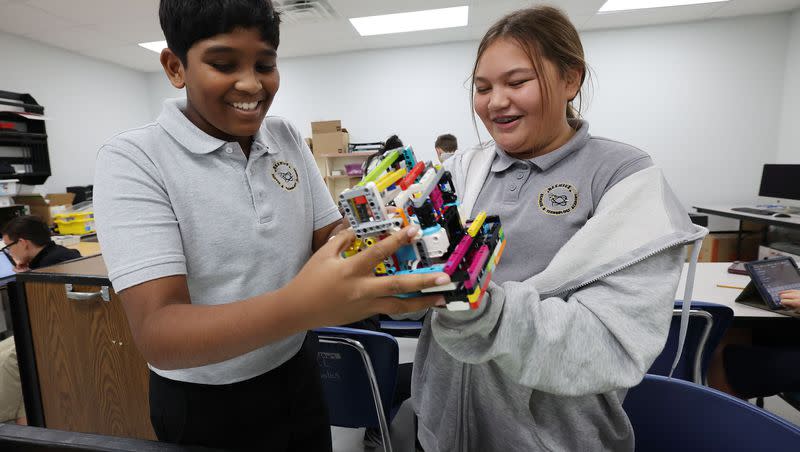These GOP senators — including Sens. Mike Lee, Mitt Romney — are celebrating National School Choice Week

A group of GOP senators — including Utah Sens. Mitt Romney and Mike Lee — introduced a resolution to acknowledge this week as “National School Choice Week.”
The resolution says having educational options “empowers” parents to “meet the individual needs and strengths of their children.”
In Utah, parents can choose to send their children to traditional or charter public schools, and last year the state legislature passed a bill to publicly fund private school scholarships for children. Nearly 83% of students in the Beehive State attend public schools that have unrestricted open enrollment processes.
Related
“For too many parents, the ability to choose a learning program that meets the needs and circumstances of their children is limited or nonexistent,” Romney said in a press release. “Parents know what is best for their kids and they should have the freedom to choose the model of education that works best for their family.”
He has backed, and even proposed, school choice policies for over a decade. In 2012, when Romney was running for president he outlined his education plan, which included tying federal funds to students instead of schools to expand options for disadvantaged families, as he said at the Latino Coalition’s Annual Economic Summit in Washington, per CBS News.
Sen. Tim Scott, R-S.C., and Sen. Bill Cassidy, R-La., who chairs the Health, Education, Labor and Pensions Committee, led the effort to introduce the resolution.
“It is unacceptable that today — in the United States of America — millions of kids who grew up just like I did still lack access to quality education simply because of their ZIP code,” Scott said.
Related
“We cannot leave our kids’ education and the future of America’s children to chance. Instead, transforming our nation’s education system and ensuring every child has access to a quality education must be our call to action every single day,” Scott said.
Lee, who supported the resolution, also proposed the Achieving Choice in Education Act last month. The bill seeks to increase the allowable tax exemption for education expenses up to $20,000 per year and incentivizes school construction projects through federal tax exemptions on municipal bonds for states with school choice laws.
“It is the fundamental right of parents to choose the educational path that is most suitable for their children,” Lee said in a press release when the bill was introduced.
The bill was based on a provision of the Trump-era Tax Cuts and Jobs Act of 2017. The same year, former President Donald Trump installed Besty DeVos as the secretary of Education. She immediately requested over $1 billion in federal funds to expand school choice within her first year as education chief.
Romney applauded her nomination in an opinion piece published in The Washington Post, saying DeVos championed choice in education in Detroit. He noted her time spent as chair of the American Federation of Children while being the leading force in the spread of charter schools in Michigan.
Utah created a school choice scholarship program last year after Gov. Spencer Cox signed the bill into law.
“School choice works best when we adequately fund public education and we remove unnecessary regulations that burden our public schools and make it difficult for them to succeed,” Cox said at the time of the approval of the bill.
A Deseret News/ Hinckley Institute of Politics poll from February 2023 found that 49% of Utahns supported legislation that allowed parents to use tax dollars designated for their child’s education as scholarship funds for private schools or homeschooling, while 45% were opposed. Only 6% said they didn’t know.

